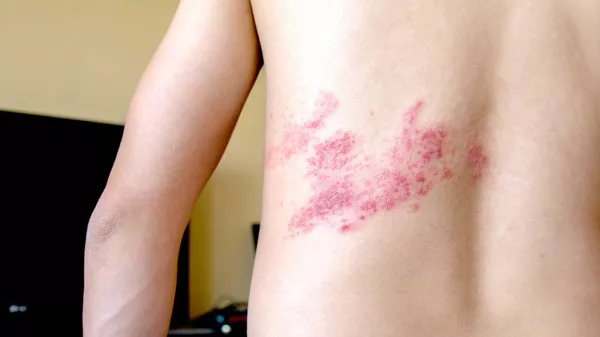Shingles, caused by the varicella-zoster virus, is a painful viral infection that manifests as a rash. While medical treatment is crucial for managing symptoms and speeding up recovery, adopting a balanced diet rich in specific nutrients can complement conventional therapies and support the body’s healing process. In this article, we explore the role of nutrition in shingles recovery and highlight key foods to include in your diet to ease discomfort and promote healing.
Understanding Shingles and Its Impact on Nutrition
Before delving into dietary recommendations, it’s essential to grasp the nature of shingles and its effects on the body’s nutritional needs. Shingles typically presents with symptoms such as a painful rash, blisters, itching, and nerve pain. The discomfort associated with shingles can lead to loss of appetite, difficulty eating, and general malaise, which may compromise the body’s ability to obtain essential nutrients.
Furthermore, the stress response triggered by shingles can deplete certain vitamins and minerals, impairing immune function and prolonging recovery. Therefore, focusing on nutrient-dense foods is crucial for individuals affected by shingles to support their immune system, reduce inflammation, and facilitate tissue repair.
Key Nutrients for Shingles Recovery
1. Vitamin C: Known for its immune-boosting properties, vitamin C plays a pivotal role in wound healing and collagen synthesis. Foods rich in vitamin C include citrus fruits (such as oranges, lemons, and grapefruits), strawberries, kiwi, bell peppers, and broccoli.
2. Vitamin E: As a potent antioxidant, vitamin E helps protect cells from damage and supports immune function. Incorporate foods like almonds, sunflower seeds, spinach, avocado, and olive oil to increase your vitamin E intake.
3. Zinc: Zinc is essential for immune function and tissue repair, making it valuable for shingles recovery. Good dietary sources of zinc include lean meats, seafood, nuts, seeds, legumes, and whole grains.
4. Omega-3 Fatty Acids: Omega-3 fatty acids have anti-inflammatory properties that can help alleviate discomfort associated with shingles. Include fatty fish (such as salmon, mackerel, and sardines), flaxseeds, chia seeds, walnuts, and hemp seeds in your diet to boost omega-3 intake.
5. Lysine: Lysine is an amino acid that may help inhibit the replication of the varicella-zoster virus responsible for shingles. Foods high in lysine include lean meats, poultry, fish, dairy products, legumes, and nuts.
6. Probiotics: Probiotics support gut health and may enhance immune function, which is particularly beneficial during shingles recovery. Fermented foods like yogurt, kefir, sauerkraut, and kombucha are rich sources of probiotics.
Sample Shingles Recovery Meal Plan
To ensure adequate intake of essential nutrients during shingles recovery, consider incorporating the following foods into your daily meals:
1. Breakfast: Start your day with a bowl of Greek yogurt topped with fresh berries, almonds, and a drizzle of honey. Pair it with a glass of freshly squeezed orange juice for a vitamin C boost.
2. Lunch: Enjoy a spinach salad with grilled chicken, avocado slices, cherry tomatoes, and sunflower seeds. Dress it with olive oil and balsamic vinegar for added flavor and vitamin E.
3. Snack: Munch on carrot sticks with hummus or a handful of mixed nuts for a satisfying and nutrient-rich snack between meals.
4. Dinner: Prepare a baked salmon fillet seasoned with lemon, garlic, and herbs, served with quinoa and steamed broccoli. Salmon provides omega-3 fatty acids, while quinoa offers lysine and other essential nutrients.
5. Dessert: Indulge in a serving of dark chocolate, which contains antioxidants and may help reduce inflammation.
Hydration and Additional Tips
In addition to focusing on nutrient-rich foods, staying hydrated is crucial for supporting recovery from shingles. Aim to drink plenty of water throughout the day to maintain hydration and support overall well-being.
Moreover, adopting healthy lifestyle habits such as getting adequate rest, managing stress, and avoiding smoking and excessive alcohol consumption can further enhance the body’s ability to recover from shingles.
Conclusion
While proper medical treatment is essential for managing shingles, adopting a balanced diet rich in nutrients can complement conventional therapies and support the body’s healing process. By incorporating foods that are high in vitamins, minerals, antioxidants, and anti-inflammatory compounds, individuals affected by shingles can alleviate symptoms, boost immune function, and promote faster recovery. Remember to consult with a healthcare professional or registered dietitian for personalized dietary recommendations based on your individual health needs and medical history. By nourishing your body with the right foods, you can navigate shingles with resilience and support your journey towards recovery.
Related Topics:
What Does Shingles Do to Your Nerves

























